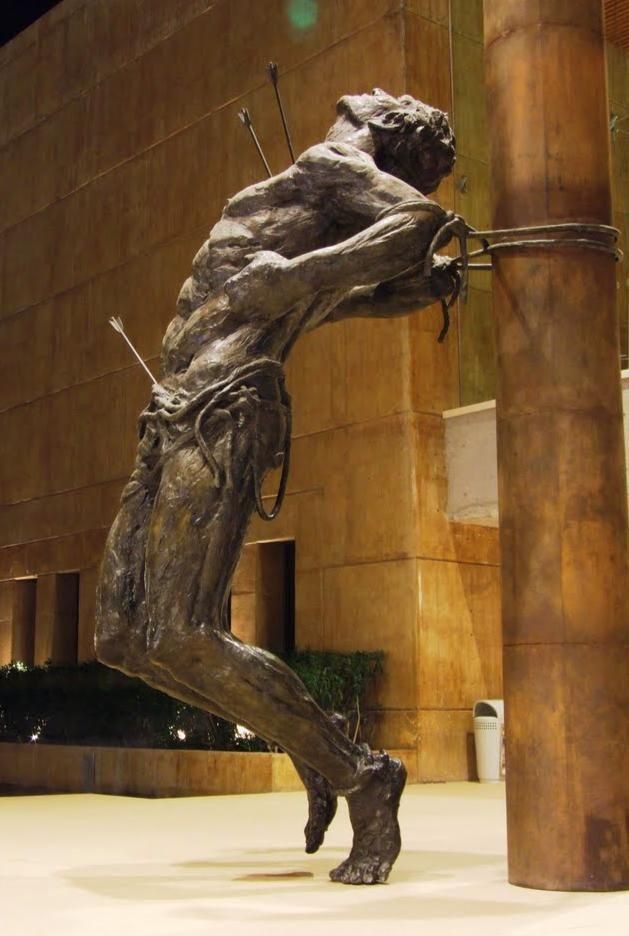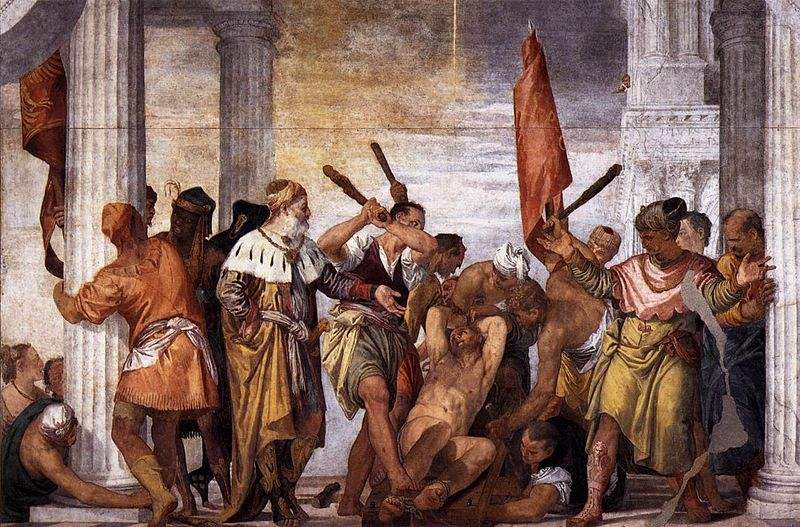Within each one of us lies the gift of healing, evangelization and being a model Christian soldier that we often fail to recognize and nurture.
Nothing is known about Sebastian’s youth other than he may have come from southern France and was educated in Milan, meaning that he came from a prominent family.
He joined the Roman Army in 283 AD, as an undercover Christian, so that he could be of service to other Christians who were being persecuted by the Romans. Known for his valor, determination and strength he was promoted to serve the Praetorian Guard to protect Emperor Diocletian. Diocletian had issued a Great Persecution against the Christians, their churches and literature.
Sebastian was a gifted healer and spent much of his time encouraging and converting countless prisoners of the Roman Army to Christianity.
Twin brothers, who were Deacons of the Church, had been imprisoned for refusing to make public sacrifices to the Roman gods. During their imprisonment, their parents visited them to implore they renounce Christianity. However, Sebastian convinced both parents to convert. He also converted several other prominent individuals.
He was discovered after having converted the Roman governor Chromatius. Chromatius resigned and freed 16 fellow converts from prison. Although the Emperor had become fond of Sebastian, he scolded him and had him tied to a stake in a field and shot to death by arrows. He survived, was hidden and healed by Saint Irene.
Upon recovery, his faith increased instead of being deterred and he searched to surprise Diocletian. He managed to catch him by a stairwell and criticize him loudly and publicly for his persecution of Christians. The Emperor ordered for him to be beaten to death with clubs and thrown into the sewers.
His body was recovered by a Christian woman, named Lucina, and she buried him in the catacombs beneath Rome. 80 years after his death, his remains were moved to a basilica in Rome, built by Pope Damasus I.
Saint Sebastian took the conversion of Christians and fighting for Christianity as his purpose of life. We often forget our reason, preferring to be our own destiny designers, and not trusting in God’s Plan.
Our words and deeds of kindness can heal and nurture a soul. Our actions must be evangelic in nature.
He is the patron saint of athletes, soldiers, and those who desire a saintly death.
His feast day is January 20.
For God’s Glory.

